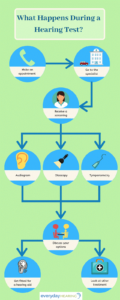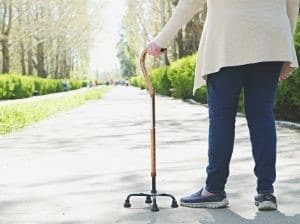
Hormones play a significant role in the human body, so much so that a small imbalance can result in a host of side effects that leave you feeling off. But how do you know if what you’re feeling is a hormonal imbalance or something else? Here are some symptoms to look out for, though it’s important to note that a followup with your doctor and blood work is the only way to confirm a diagnosis.
Types of Hormones
There are several types of hormones in a person’s body, most of which are present in both men and women. Insulin, adrenaline and growth hormones are the main types. Insulin is produced by the pancreas as a means of regulating blood sugar, preventing it from getting too low or high. When this hormone is imbalanced, it can lead to a host of problems, including diabetes.
When you think of adrenaline, you probably think of the feeling that you get during a fight-or-flight scenario. The truth is, it’s always present in the adrenal glands where it’s produced, then released into the bloodstream in times of stress. Overproduction of the hormone is more common than underproduction and can result in high blood pressure, palpitations, weight loss and excessive sweating.
Manufactured by the pituitary gland, growth hormones are responsible for the body’s growth, particularly in children, where they help increase height. In adults, growth hormones are responsible for maintaining one’s body structure and regulating metabolism.
Steroids are another type of hormone that occur naturally within the human body. They make use of proteins and help build up muscle tissue. Cortisol steroids are perhaps the most common and are produced by the adrenal gland, much like adrenaline. Others, including estrogen, androgen and progestagen are sex steroids and primarily function to support reproduction efforts and create gender differences.
What Causes Hormonal Imbalances?
There are a number of events that can result in hormonal imbalances. Some, such as Type 1 diabetes, puberty and menopause, are out of a person’s control, while others occur as a result of lifestyle decisions such as poor diet.
There are more causes of hormonal imbalances in women — both natural and as a result of outside factors — than men. For many, simply undergoing hormone therapy is enough to restore balance. This can include Bio-identical Hormone Replacement Therapy, also known as BHRT. Hormone therapy can be administered in several forms including nasal sprays, capsules, creams and patches.
Symptoms of Hormonal Imbalances in Women
A hormonal imbalance in women can present in different ways, and not everyone will have the same symptoms. Some women experience hot flashes, weight gain or even thinning hair. Others have increased hair growth on the chest, neck, face or back, or suffer from indigestion and constipation. The most common type of hormonal imbalance in women is a result of estrogen production, either too much or too little, which is largely affected throughout the stages of menopause.
For those brought on by lifestyle decisions, some of the symptoms may be reduced or eliminated altogether with weight loss, eating healthy and taking hormone supplements recommended by the best hormone doctor in Scottsdale or physician.
Some studies even suggest that specific foods may help with alleviating symptoms brought on by menopause, like hot flashes — it certainly can’t hurt to try. However, for persistent signs, it’s always a good idea to speak with your doctor.
Hormonal Imbalances in Men
Men are not exempt from hormonal imbalances, and many may stem from testosterone production. Naturally occurring causes include puberty and aging. Medical conditions associated with hormonal imbalances may include hypogonadism, or low testosterone, and prostate cancer.
Like women, osteoporosis is one symptom. Other common issues include reduced sex drive, low sperm count, erectile dysfunction and reduced hair growth on the body.
Treating Imbalances
There are two ways to treat imbalance symptoms: with medicine or natural remedies. There are different types of medications and therapies that doctors can prescribe. Seniors especially prone to osteoporosis and loss of muscle mass due to aging may benefit from prolonged hormone therapy according to studies.
Natural remedies include eating healthy, taking supplements such as ginseng, red clover or evening primrose, along with implementing healthy habits like managing stress, avoiding sugary or pre-packaged foods, exercising regularly and maintaining healthy body weight.
Hormonal imbalances affect millions of people, including up to 47% of women. Knowing the signs can help you pinpoint symptoms and determine whether it’s time to speak to a doctor. Look for a hormone specialist Maryland here.








